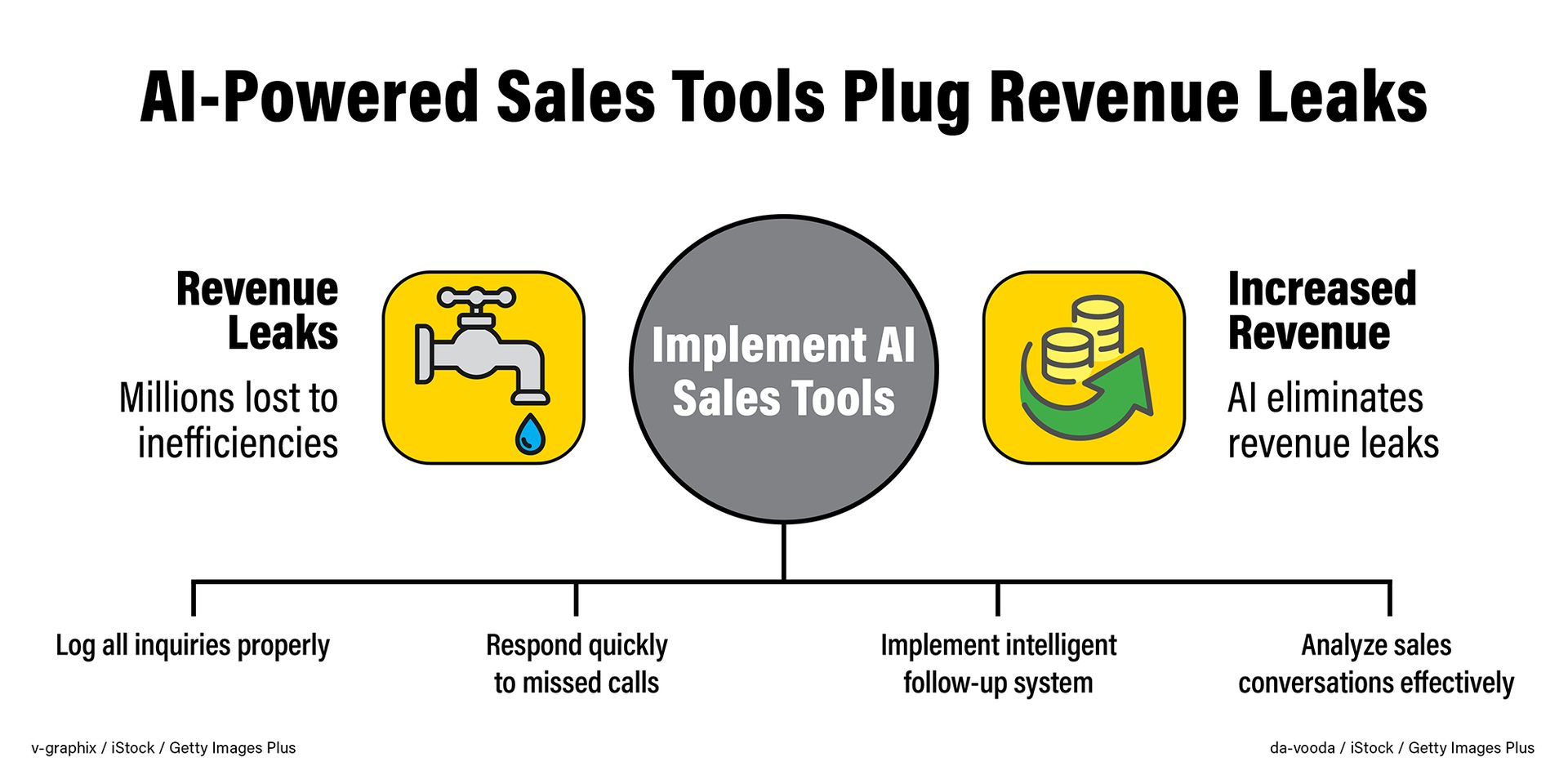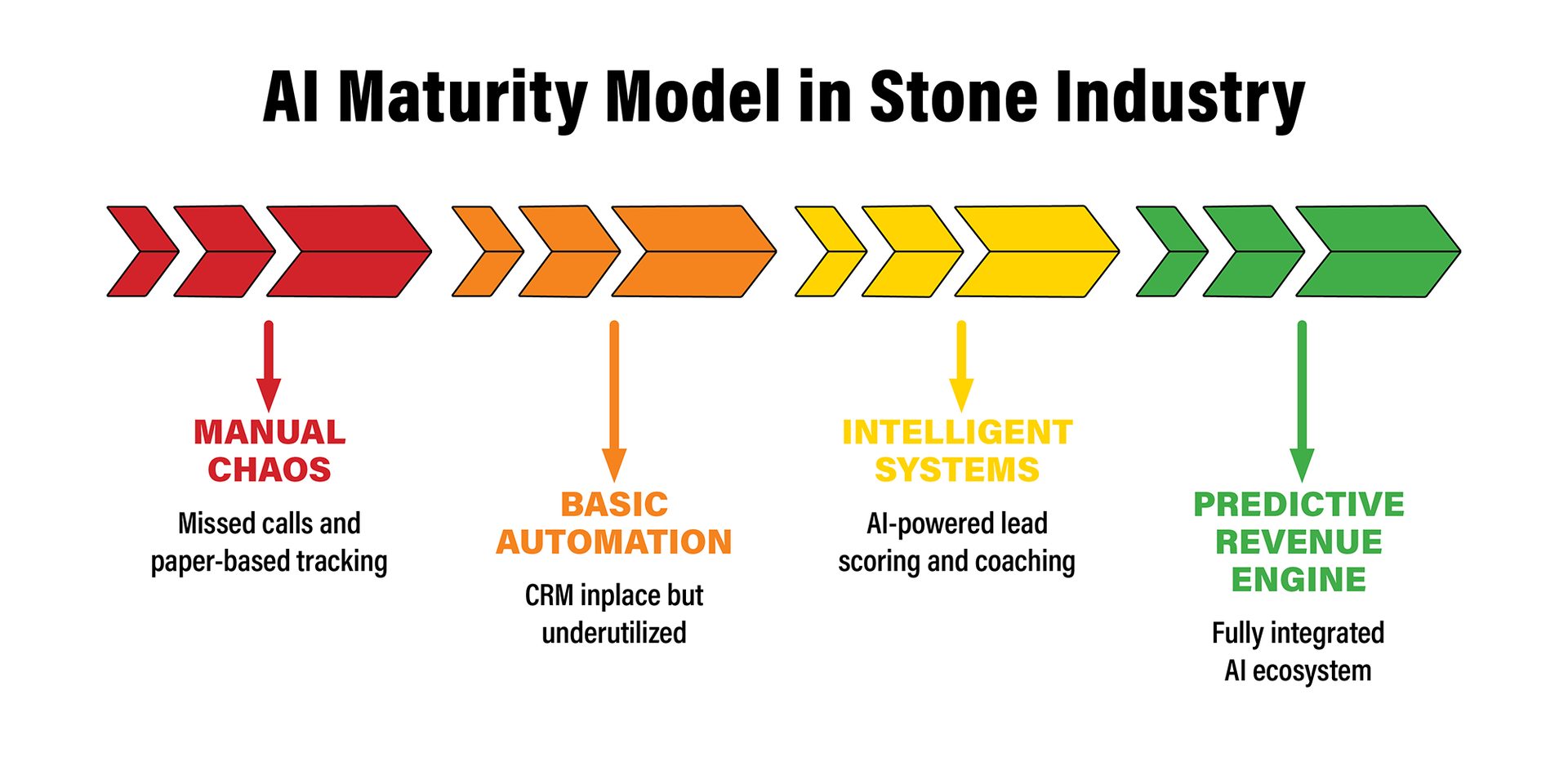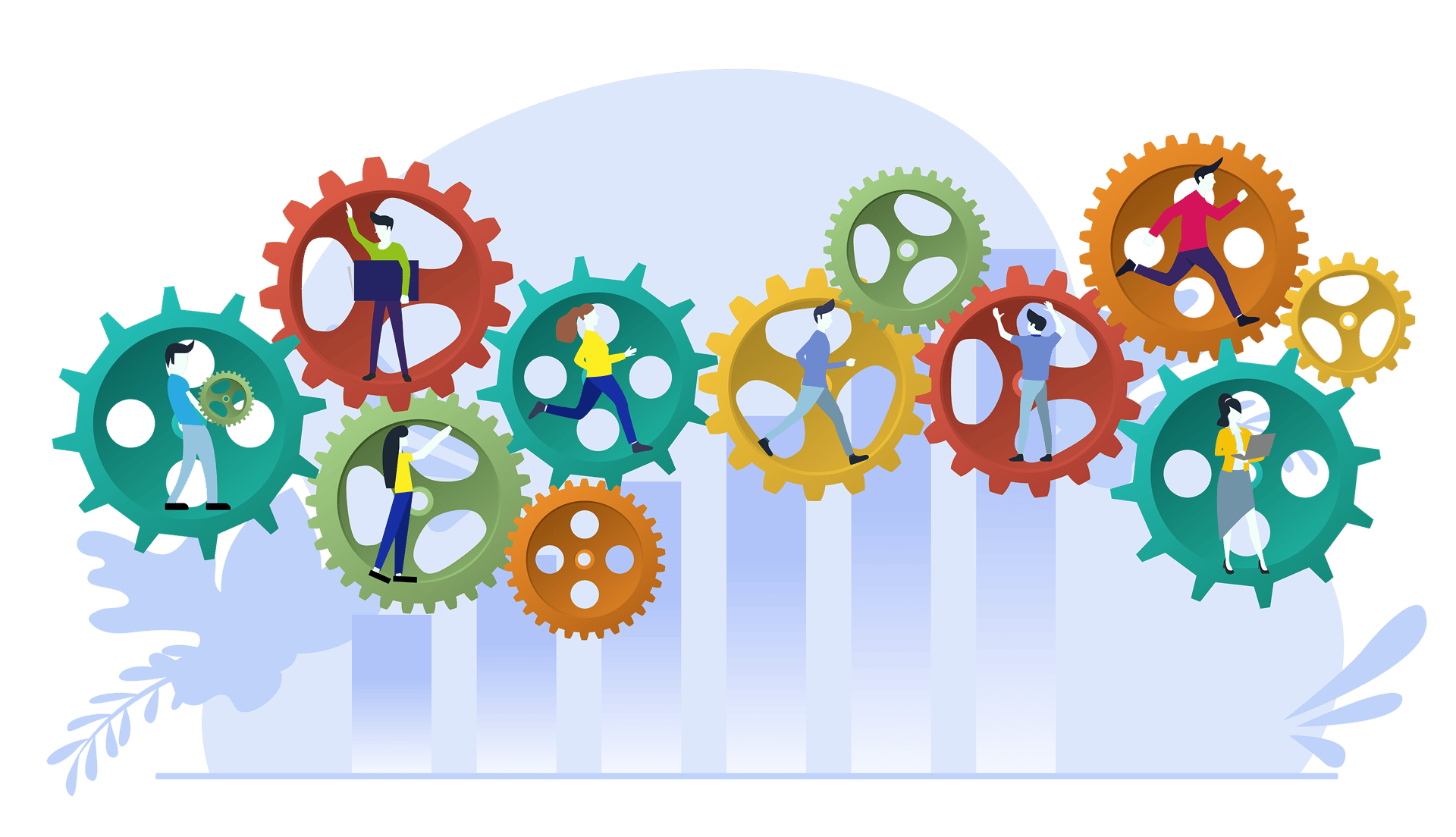Stock photo and footage / iStock / Getty Images Plus
Four Revenue Leaks to Identify and Learn How to Avoid with AI-Powered Tools
Subhead
by Anthony Milia
Here is a question that should keep every stone fabricator awake at night: How many calls did your shop miss last month? If you are like most fabricators we have crossed paths with, you probably do not know the exact number. But here is what research reveals: according to CallRail's 2024 Business Communications Report, the average small business misses 27% of incoming calls during business hours¹. For construction and home improvement businesses specifically, that number jumps to 31% during peak hours and 84% after hours and weekends².
Now multiply those missed calls by your average project value. For a shop averaging $8,500 per project, just five missed calls per month represents $42,500 in lost revenue. Over a year, that is over half a million dollars walking out the door because no one answered the phone.
But missed calls are just the tip of the iceberg. The real revenue leak happens in what I call the "The Sales Sinkhole" – where leads go to die between initial contact and signed contracts.
The Four Critical Revenue Leaks Killing Your Growth
After auditing sales and marketing processes for over 200 stone fabricators, we have identified four systematic revenue leaks that AI can eliminate:
Revenue Leak #1:
The Phantom Lead Problem
Here is a scenario we see weekly: A homeowner calls your shop, speaks with someone at the front desk, expresses genuine interest in a kitchen renovation and asks to be called back with pricing information. Your team member writes the name on a sticky note, gets busy with other tasks and never logs the lead into your CRM system.
According to our internal analysis of 50+ stone fabricator CRM systems, 84% of phone inquiries never get properly logged as leads. These "phantom leads" represent interested prospects who reached out but disappear into a black hole of poor process management. Leads that you are paying to attract.
The Harvard Business Review found that companies with structured lead management processes see 18% higher revenue growth compared to those without³. Yet most stone shops treat lead capture like an afterthought rather than the revenue-critical process it actually is.
Revenue Leak #2:
The Missed Call Crisis
For stone fabricators, where projects often represent significant investments, this timing factor becomes even more critical.
We tracked call response times for 25 fabricators over six months and found the average response time to missed calls was 4.7 hours. By then, 67% of prospects had already contacted competitors.

Revenue Leak #3:
The Sales Sinkhole
Even when leads are captured and initial contact is made, most fabricators fail at systematic follow-up. Salesforce research shows that 80% of sales require five or more follow-up attempts, yet 44% of salespeople give up after just one follow-up⁵.
In the stone industry, where customers often take months to make decisions, this follow-up failure is devastating. Our analysis shows that fabricators who implement automated, intelligent follow-up systems see 34% higher conversion rates than those relying on manual processes.
Revenue Leak #4:
The Conversion Intelligence Gap
Most fabricators treat sales conversations like black boxes. A prospect calls, your team member handles it and you hope for the best. Without analyzing what actually happens in these conversations, you are flying blind on your most important business process.
The AI-Powered Revenue Recovery Framework
Based on 9+ of implementing conversation intelligence systems and analyzing thousands of digital sales interactions in the stone industry, here is the comprehensive framework that is transforming fabricator revenue capture:
Stage 1:
Conversation Intelligence - Every Call Becomes Revenue Data
Modern conversation intelligence platforms like Gong, Chorus or CallRail's conversation analytics don't just record calls – they analyze every word to provide actionable business intelligence:
- Objection Analysis: The AI identifies the most common reasons prospects do not buy and tracks how successfully your team handles each objection type. We have found that fabricators who implement conversation intelligence reduce price objections by an average of 28% within 90 days through improved objection handling.
- Competitor Intelligence: Track every mention of competitors, understand why prospects are considering alternatives and develop strategies to differentiate your offerings.
- Timeline Prediction: AI identifies verbal cues that indicate buying timeline, allowing your team to prioritize hot prospects and nurture longer-term opportunities appropriately.
- Talk-Time Optimization: Research from Gartner shows that successful sales conversations have specific talk-time ratios⁶. The AI tracks these ratios and coaches reps toward optimal conversation balance.
Stage 2:
Voice AI - Your 24/7 Revenue Capture System
While conversation intelligence analyzes the calls you are having, Voice AI ensures you never miss a revenue opportunity. Modern voice agents can:
- Qualify prospects automatically: Using branching logic based on project type, timeline and budget.
- Schedule consultations: Direct integration with calendaring systems eliminates phone tag
- Provide initial estimates: For standard projects, AI can offer ballpark pricing to keep prospects engaged.
- Capture after-hours leads: Turn your phone system into a 24/7 lead generation machine
- The ROI Math: Fill in the opportunity cost with your own numbers. Here is an example: If your average project value is $[fill this in with your number] and you are missing [#] calls per month, that is $[monthly amount x 12] in annual lost revenue.
Stage 3:
CRM Intelligence - From Guesswork to Guided Action
The most sophisticated CRM systems now incorporate AI to predict outcomes and recommend actions. Instead of your sales team wondering "Who should I call today?" platforms like HubSpot's AI tools or PipeDrive tell them exactly which prospects are most likely to convert and what actions will move them forward.
- Lead Scoring Automation: AI analyzes hundreds of data points – website behavior, email engagement, call recordings, project specifications – to score leads by conversion probability.
- Next Best Action Engine: The system provides specific recommendations: "Call John Smith about his kitchen project – he's viewed your portfolio three times this week and is 89% likely to convert."
- Pipeline Forecasting: Predict monthly revenue with accuracy that enables confident business decisions about staffing, inventory and growth investments.
Stage 4:
Integration Intelligence - The Multiplier Effect
The real power comes from system integration. When your Voice AI captures a lead, qualifies them, automatically creates a scored record in your CRM, triggers personalized follow-up sequences and feeds conversation data back to improve qualification scripts – that is when AI becomes a competitive weapon.

The Stone Industry AI Maturity Model
Based on our experience with 200+ fabricator implementations, we've identified four stages of AI sales maturity:
Stage 1: Manual Chaos
- Missed calls are common
- Leads tracked on paper, basic spreadsheets, or archaic “CRM’s”
- No systematic follow-up process
- Sales performance based on individual relationships
Stage 2: Basic Automation
- CRM system in place but underutilized
- Inconsistency with team members
- Inconsistent call logging
- Limited sales performance visibility
Stage 3: Intelligent Systems
- AI-powered lead scoring and prioritization
- Conversation intelligence providing coaching insights
- Automated voice capture for missed calls
- Data-driven sales process optimization
Stage 4: Predictive Revenue Engine
- Fully integrated AI ecosystem
- Predictive analytics driving business decisions
- Autonomous lead nurturing and qualification
- Continuous optimization based on AI insights
Common Implementation Pitfalls (And How to Avoid Them)
After managing dozens of AI sales implementations, here are the most common mistakes fabricators make:
Pitfall #1
Tool Isolation:
Implementing conversation intelligence, voice AI and CRM systems from different vendors create data silos. Solution: Choose integrated platforms or ensure robust API connections between systems.
Pitfall #2
Insufficient Training:
AI systems require human partners who understand how to interpret and act on insights. Solution: Invest in comprehensive team training, not just system setup.
Pitfall #3
Over-Automation Too Quickly:
Trying to automate everything at once often backfires. Solution: Phase implementation starting with conversation intelligence, then voice AI, then advanced CRM features.
Pitfall #4
Ignoring Data Quality:
AI systems are only as good as the data they analyze. Solution: Clean up existing CRM data before implementing AI features.
The Competitive Reality: Lead or Follow
While some fabricators debate whether AI is worth their attention, others are building insurmountable competitive advantages. According to McKinsey's 2024 AI Index, companies that have successfully implemented sales AI see an average revenue increase of 15% within 18 months⁷.
Your Implementation Roadmap
Month 1-2: Foundation Building
- Audit current lead capture and CRM processes
- Implement conversation intelligence on all sales calls
- Clean and organize existing customer data
Month 3-4: Voice AI Deployment
- Deploy voice AI for after-hours and missed call capture
- Integrate voice AI with existing CRM system
- Train team on new lead qualification processes
Month 5-6: Intelligence Integration
- Implement AI-powered lead scoring and prioritization
- Deploy automated follow-up sequences
- Begin using predictive analytics for pipeline management
Month 7-12: Optimization and Scaling
- Continuously refine AI models based on performance data
- Expand AI capabilities to additional business functions
- Use insights to inform business strategy and growth planning
The stone fabricators who embrace AI today will dominate their markets tomorrow. Those who wait will find themselves competing against businesses that operate with fundamentally different capabilities.
The AI revolution in stone fabrication is not coming – it is here. The only question is whether you will lead it or be left behind by it.
Ready to plug the revenue leaks in your stone business?
We specialize in implementing AI-powered sales and marketing automation specifically for stone fabricators.
Schedule your assessment at miliamarketing.com/discovery/ and mention you read this Stone World article.
During this assessment, we will analyze your current sales and marketing process, identify your biggest revenue leaks and show you exactly how a proper sales and marketing system transforms your lead capture and conversion rates.
Do not let another qualified prospect slip through the cracks while you debate whether AI is worth your attention. Your competitors are already making that decision for you.
Sources:
1CallRail Business Communications Report 2024
2Construction Industry Call Response Study, BuilderTrend 2024
3Harvard Business Review, "The Power of Lead Management," March 2024
4Lead Connect, "Lead Response Management Study," 2024
5Salesforce State of Sales Report, 2024
6Gartner Sales Research, "Conversation Analytics Impact Study," 2024
7McKinsey Global Institute, "The Age of AI," 2024
SHARE THIS
Rod Sigman CTC, CCTS, CSMTT is the business development leader for MAPEI Corporation’s UltraCare® line of products for the care and maintenance of tile and stone products. Sigman has a proven track-record of success in the flooring industry, with experience in both training and education, as well as all support functions pertaining to national sales accounts and distribution. He has served on the technical committees of the National Tile Contractors Association (NTCA) and the Natural Stone Institute (NSI). He has successfully completed the Ceramic Tile Consultant Course, is a Certified Ceramic Tile Specialist (CCTS) and is also a Concrete Slab Moisture Testing (CSMT) Technician. Further, he was recognized by the Marble Institute of America (now the Natural Stone Institute) as a significant influence for the stone industry.

